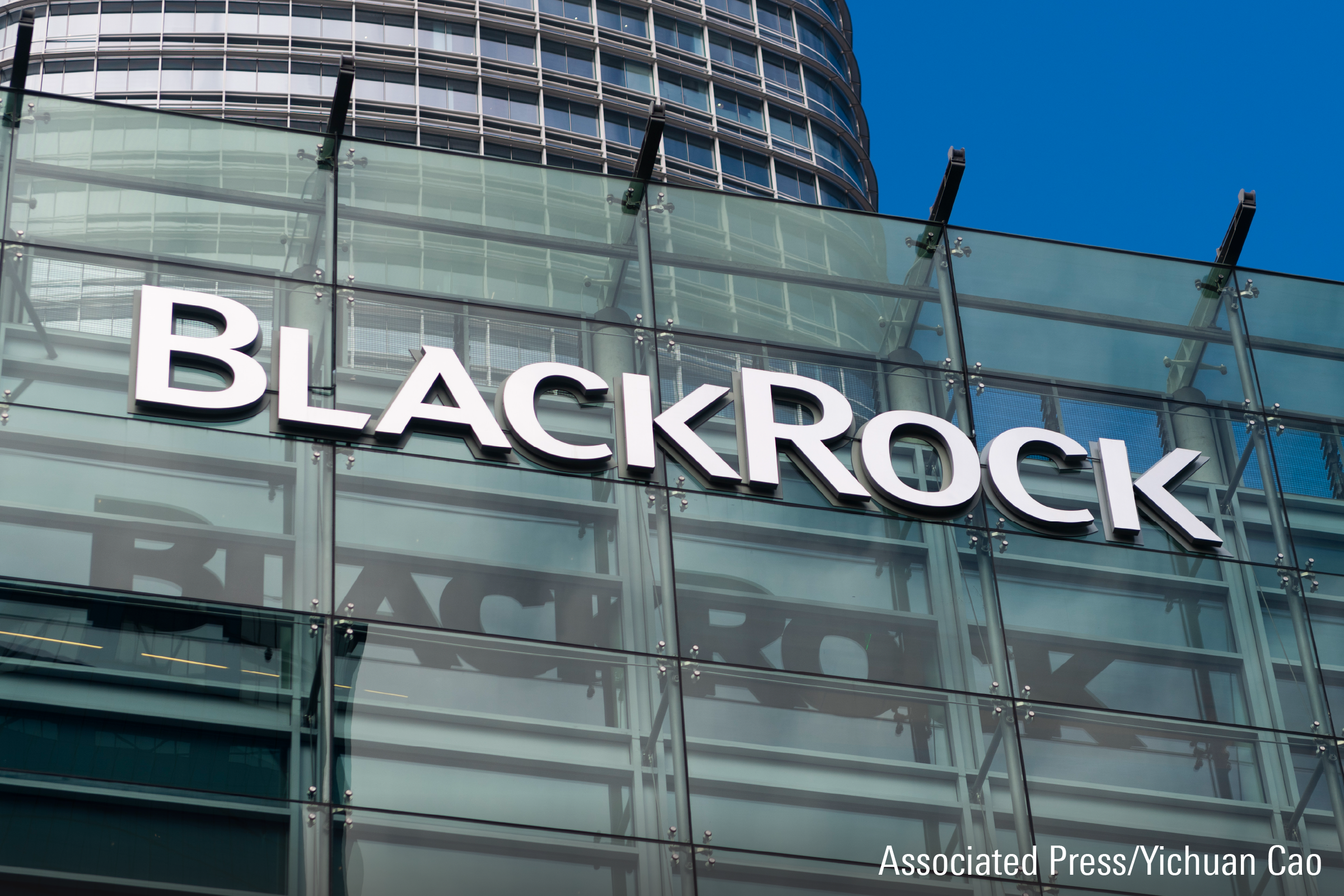Is BlackRock to Blame for iShares’ ESG Fund Outflows in May?
The giant asset manager has dialed back exposure to these ETFs in its model portfolios.

Turns out BlackRock BLK, the behemoth asset manager that has promoted sustainable investing in recent years, is responsible for some of the outflows from the sector.
In May 2022, both iShares ESG Aware MSCI USA ETF ESGU, one of the largest sustainable funds, and iShares ESG Aware MSCI EM ETF ESGE suffered outflows. ESGU has been one of the biggest recipients of investor interest during the bull market for sustainable investing. Indeed, despite the net redemptions, ESGU had a positive net flow of $7.1 billion for the 12 months ended in May.
Jeffrey Ptak, chief ratings officer for Morningstar, noticed that both ESGU and ESGE “were driving the bulk of outflows” among sustainable funds in May. That led him to compare the April and May recommendations for the BlackRock model portfolios, including the popular 60/40 model. In that model, the 3.07% exposure to ESGE turned to zero, while the 16.08% exposure to ESGU fell to 14.27%. BlackRock also increased its exposures to U.S. bonds and convertibles and added new allocations to small-cap value and high-dividend strategies. “It seems like they were trying to get a little more defensive within the equity sleeve,” Ptak says.
What gives? Well, BlackRock has been using the sustainable funds in the models in place of conventional equivalents, as Jason Kephart, Morningstar’s director of multi-asset ratings, observed in 2020.
Third-party model portfolios are a growing option for financial advisors that are looking to outsource some, or all, of their portfolio management responsibilities. In 2020, BlackRock added ESGU to dozens of its model portfolios that didn’t have a specific environmental, social, and governance mandate. At the time, Kephart wrote, BlackRock thought that the portfolios would benefit from owning higher-quality companies that minimized their ESG risks.
At the same time, BlackRock has been a proponent of ESG, led by its outspoken chief executive Larry Fink.
Is BlackRock souring on sustainable investing? Doesn’t look like it. These funds are pretty ESG-light. They are well-diversified, broad-market funds that use basic ESG screens. For example, ESGU starts with the MSCI USA Index, then filters for stocks complying with its ESG screens. It targets a tracking error of 0.5% relative to the index. Sector weights can’t deviate by more than 5 percentage points from those of the index, and individual positions can’t deviate by more than 2 percentage points.
BlackRock declined to confirm the model portfolio changes. However, the firm shared with Morningstar the commentary it sends to advisors, in which key takeaways included:
- Trim equity overweight but maintain a preference for stocks over bonds, with a focus on adding portfolio resilience as inflation potentially apexes but recession odds tick higher.
- Reduce overall sensitivity to growth and volatility, cutting net exposure to technology, small caps, and credit, while locking in gains on commodities and energy stocks after handsome rallies.
- Introduce exposure to U.S. infrastructure and dividend-focused stocks, which have historically delivered attractive relative returns during periods of tightened financial conditions.
- Increase exposure to U.S. Treasury Inflation-Protected Securities, which potentially provide less downside if long nominal rates rise further while tactically hedging against any further potential upside surprises in inflation expectations.
- Remain underweight emerging-markets stocks and aim to derisk further by rotating into names that have historically exhibited lower volatility characteristics.
“The potential for a recession has indeed increased,” BlackRock wrote to advisors. “As the Fed flirts with this tipping-point amid its efforts to corral inflation, we think volatility could remain elevated and growth-oriented assets could underperform.”
BlackRock continued: “Within U.S. equities, we are repositioning into potentially lower-risk exposures, moving closer to neutral on the value/growth style trade, hardening the portfolio for whatever may come. While, as we highlighted in March, a recession in Europe has become increasingly possible, we now believe the European Central Bank will shift policy to be relatively less antagonistic to risk assets and only slowly normalize policy, which makes international developed-markets stocks marginally more attractive, particularly after such a vicious selloff.”
The author or authors do not own shares in any securities mentioned in this article. Find out about Morningstar’s editorial policies.

/s3.amazonaws.com/arc-authors/morningstar/d53e0e66-732b-4d50-b97a-d324cfa9d1f8.jpg)
/cloudfront-us-east-1.images.arcpublishing.com/morningstar/NNGJ3G4COBBN5NSKSKMWOVYSMA.png)
/cloudfront-us-east-1.images.arcpublishing.com/morningstar/6BCTH5O2DVGYHBA4UDPCFNXA7M.png)
/cloudfront-us-east-1.images.arcpublishing.com/morningstar/EBTIDAIWWBBUZKXEEGCDYHQFDU.png)
:quality(80)/s3.amazonaws.com/arc-authors/morningstar/d53e0e66-732b-4d50-b97a-d324cfa9d1f8.jpg)